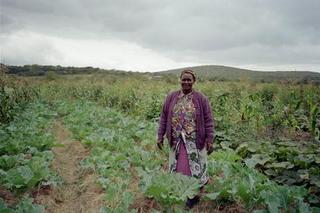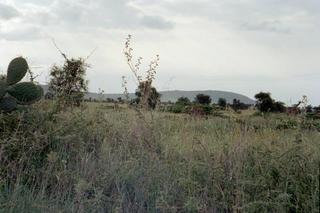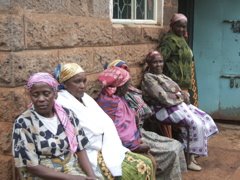Wednesday, December 07, 2005
And the winner is Karen Lucas...
Kaz who has always wanted to be a performer and has shown consistently that she has the stuff to make it work! She has also been on stage at the Phoenix Players Theatre and has traveled to South Africa to perform with other artists.
While talking to BBC Kaz had this to say about winning a Kora at the 10th annual All African Kora Music Awards:
"They call your name, you go up and you get the award and you go back to your table and you are like "Did that really happen?" Its unreal. It still hasn't sunk in yet."
Kaz's music, afro-fusion is a mix of African music and modern beats to create what is catergorised as "World Music." It's a relatively new form of music that seeks to stand aside from hiphop by creating a niche for African music in the world market.
Kaz will be launching her album later this year.
Stay tuned on where to get a copy when it comes out.
Congratulations Kaz!
Tuesday, November 29, 2005
Taboo Culture
To what extend does this culture interfere with what a woman can or cannot do?
Is it regional: Are some Muslim societies more oppressive than others?
Who is the oppressor in the culture?
Is it the men who direct the code of culture?
Is it the women who are apathetic to the society the live in?
Or is it the religion?
Ayaan Hirsi Ali, a Somali immigrant to Holland and a Member of Parliament was the target of an attack that led to the murder of Theo van Gogh. Her script which chronicled the oppression of Muslim women was filmed and directed by this distant relative of Vincent van Gogh. He was killed and a note found on his body highlighting the threat to Ayaan Hirsi Ali's life.

http://service.spiegel.de/cache/international/0,1518,337857,00.html
Ayaan Hirsi Ali is working on a second script.
http://news.bbc.co.uk/2/hi/entertainment/4447366.stm
Tuesday, November 22, 2005
A great book if you haven't read it
“Walking on Fire: Haitian women’s stories of survival and resistance”
by Beverly Bell
The author conducted interviews of women’s istwa (stories) in Haiti (1991 – 1994) and transcribed them to create this book. At the beginning of each chapter she gives a brief history of the different struggles that women in Haiti face. She titles them as resistances. For each struggle the women face, despite poverty and persecution from the government, they are standing up to the oppression.
“Bat tenèb, to beat back the darkness, is one of the many traditions in which Haitians turn their meager tools of survival – in this case, cooking spoons and pots – into a mighty form of power. In a daring and deafening act, women in the slums beat against metal to raise their voices against repression. This book is bat tenèb.”(Preface xiii).
Right from the start the author introduces her experiences with strong women who have a long history of struggle and resistance. The struggle is daily in poverty and generational in governance.
Like much literature on women in poverty and development the feminization of poverty portrays the women as victims. However, the stories told by these women speak of strength to rise again. They are the victims in coups, they are raped and mutilated, they watch their children and husbands murdered and they suffer the consequences of famine and hunger. In peace and in war, the women face domination from dictatorship, local landowners and their husbands. In this cycle of oppression many of the women have organized themselves in “grassroots” groups to support each other.
“…each Saturday, when we have a meeting we put gourde in the fund. When we get up to fifty gourdes (U.S. $3.33), we give it to a peasant. She can buy a small basket of mangoes with it. When she sells them, she gives us back a gourde to put in the cash box so that it’s never empty. And when they need to borrow, we don’t give loans for the normal 100 percent interest. We lend people ten gourdes, they pay back ten gourdes." (pg. 117)
Where the government has failed, the women have pulled together to not only feed their families but to also educate themselves. Like in many other countries there is a clear crosscutting of the structures of power and access to basic rights. As long as women are pre-occupied with finding food for their families they don’t have the time to organize and change the political system. As long as they don’t have the time to learn to read, they continue to be illiterate and to be left out of the running of their countries. As long as women don’t have the means (e.g. land) to create a sustainable income they cannot send their children to school. Their children inherit poverty. In globalization and development as long as women are left out of decisions making process, the trickling down of benevolent actions comes too late. The feminization of poverty seeks to assume that women languish in poverty because of biology. It reduces the impact of a power structure of widespread domination from the home to the nation. Micro-credit and any other lab directed initiative has not effect on the welfare of these women as long as they are kept out of the formulation of solutions to the poverty that is part of their world. Several of the women in the book offer ideas on how to alleviate poverty (poverty cannot be eradicated, as by the attached articles, poverty seeks to fulfill varied needs). Apart from the usual recommended textbook solutions, Yolette Etienne prescribes an ideal form globalization. These are paraphrased below:
1. Focus on women when discussing development
2. Break patterns of isolation e.g. information systems with other women from other parts of the country and the world on a larger scale
3. More control by women over their lives i.e. autonomy not individuality
4. Work towards goals for success for the individual and the country through shared power in society e.g. decision making where it concerns laws, etc. (This may involve translation of laws and the like into local languages, a tactic many politicians use as a mode of exclusion).
5. Pride in small steps achieved at a national level
6. A search for globalization that enhances and strengthens what the country already posses be it cultures or existing resources e.g. agriculture as opposed to industry
7. Better education of local dealers in world markets so that they understand the world prices and don’t undervalue products from the country
Globalization is ideal in its theory. Etienne describes what the problem of globalization is in a “5 sweet manner.” (email me and ask me about this)
"By the way the big countries define it and apply it, globalization is more in the interest of those producing than all the people who are forced to buy. That is to say, you who used to grow your plantains, who didn’t need to buy plantains, are told, “You don’t have to grow plantains because we make enough for you to buy them from us when you need them.” But where do you get the money to buy these plantains from overseas?" (pg. 120)
The world’s poverty is not based on the lack or reduction of all resources. This is impossible. Poverty is caused by an overlooked but important limited resource. Money. Money is needed to develop goods for sale. Money is needed to buy the goods for sale. If a group of people start off without money or as it is often named, “capital,” they can neither develop nor buy. Hence poverty.
Power, politics, socioeconomics, illiteracy and other major words mean nothing to the mother of a starving child.
“Si pa gen lape nan tet, pa ka gen nan vant. There is no peace in the head if there is no peace in the stomach. The women state throughout their istwa that social and political rights have limited meaning when their children have not eaten since yesterday morning.” (pg. 100)
Bell, Beverly. Walking on Fire: Haitian women’s stories of survival and resistance. Ithaca: Cornell University Press, 2001.
Monday, October 31, 2005
Sucess is...
Success can be determined by the society one lives in. Recognition in terms of awards, are some ways in which one is able to keep track of their progress or lack of. This is highly characteristic of fields where the competition is high.
“If I am trying to develop myself, I should not do it individually and actually that is [where] the idea of working with community came in. I did not want people just to see trees in my homestead. I wanted them to see trees in the locality and a visitor coming would want to ask…how come there are many species of trees…then of course somebody will start telling the story.” – Margaret
A majority of the women interviewed displayed altruism through the nature of their work. Success is not necessarily personal but can be a shared among several individuals.
“Success for me is [pause] engaging in activities, in things that stimulate you and leave you feeling satisfied because you have done things that you’re passionate about… People drive me and I am passionate about people’s success which is part of my success.” – Njeri
When asked to talk about their work, be it farming, architecture, etc., the women displayed an enjoyment in the fields they had chosen to pursue. Love of particular work makes it less like work and more like an activity that builds the person. Growth in this way can be described as success.
“[pause] If you had asked me that question last year, I would have a different answer. For me right now, success is…is that ability to bring something new and good to an other.” – Yvonne
Success evolves. Once certain goals are achieved, others are set in place and this creates a new search for success.
"…Loving my children, educating them and making sure that they all go to school. That is my life. I have raised my children. My joy comes from that.” - Justina
Success can also be achieved through one’s children. For some of the women, their dreams were realized when their children succeeded in something they themselves did not. Education is one of these areas.
How do you define success?
Thursday, October 20, 2005
how to post a comment
Many of you have asked how to post a comment. Please find the steps below:
1. At the bottom of each post you will see this:
"posted by the center @ 8:58 PM 3 comments "
2. Click on the 3 comments part of the sentence
3. A pop up window will appear and the tab will be set under "Leave your comment" Write you comment here.
4. When you have written your comment, select your identity as "Other" or as a blogger if you own a blog site.
5. Fill in your name in the name slot. You do not need to fill in the web page slot.
6. Under "word verification" type in the letters you see above the box ( this reduces spam which can sometimes be posted on the blog...believe me it's annoying)
7. Click "Publish Your Comment"
8. And you are done!!
You can then go back to the blog and and review another post and comment.
Wednesday, October 12, 2005
Ngina and Grete's Story
Ngina and Grete cover the expenses on this project out of pocket.
On this visit, they visited a local Enviroment Club from a school in this district to teach them about tree planting.

Many in this area don't believe that anything other than acacia trees and grass can grow here. Compare the photo of the lady in her shamba :

and the cactus filled scenery:
 This lady is one of the many who follow the training offered by Ngina and Grete.
This lady is one of the many who follow the training offered by Ngina and Grete.
Please see more photos by following
Tuesday, October 11, 2005
Start here...
I talked to lawyers, politicians, teachers, farmers, CEO’s, an architect, entrepreneurs, writers, college students, doctors and scientists. It was an amazing experience that has changed my life and from this experience I hope to change the lives of others positively.
Thank you from the bottom of my heart to these women. Thank you.
My goal is to set up a Women’s Center where women of all ages, classes, races etc can share their experiences and learn from each other. The first center will hopefully be started in Kenya and with the help of other women in other countries; more can be set up based on this model. More on the center later.
This now brings me to the existence of this blog. It will take some time before the physical center can be created. While talking to the CEO of an IT firm, she asked me for the link to the Women’s Center website. I told her I would get back to her on that one. So this blog is a small step towards the center. Small but significant.
This blog is fro your interests, whether man or woman, no matter what corner of the world you are from.
All I ask is that you respect the women who use this site. Please email me on katiyawanawake@yahoo.com if you would like to be a contributor, or simply if you have any questions or comments. Otherwise, please feel free to post your thoughts.



